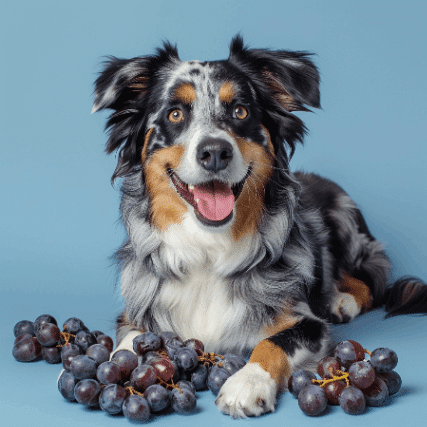If Your Dog Ate Grapes or Raisins
If your dog has eaten grapes or raisins and you don't have the necessary first aid kit at home, contact your veterinarian immediately for guidance. This page is designed to help you prepare for any future incidents (which we hope never occur) by ensuring you have the tools and knowledge to provide immediate care at home, thus safeguarding your dog's health and gaining precious time.
Be prepared for future emergencies with ReadyRESCUE™, the at-home first aid kit for pets. >>
Quick Insight into Grapes, Raisins, and Your Dog's Safety
Grapes and raisins may seem like harmless treats, but for our canine companions, they're a known danger. Understanding why these foods are toxic and equipping your home with a dog first aid kit like ReadyRESCUE™ can be vital when curiosity strikes.
Why Grapes and Raisins are Toxic for Dogs
Grapes and their dried counterparts, raisins, contain a substance recently identified as Tartaric Acid, which is highly toxic to dogs. When ingested, even in small amounts, these fruits can lead to rapid kidney failure, a condition that can be acute and potentially fatal. This toxicity affects dogs irrespective of the type of grape or raisin, breed, age, or health condition. Common symptoms such as vomiting, lethargy, and dehydration can manifest within just a few hours, emphasizing the critical need for prompt and immediate action.
The First Aid Kit That May Save Your Pet
When it comes to handling emergencies like accidental ingestions of dangerous items such as grapes, raisins, and other toxic substances, having a first aid kit tailored for pets is crucial. ReadyRESCUE™ serves as an essential component of such a kit, offering broad-spectrum detoxification capabilities. This at-home emergency detoxifier is designed to quickly bind various organic toxins before they can be absorbed into your pet's system, providing an immediate protective measure.
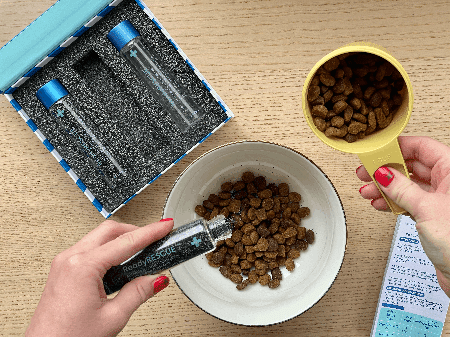
Can a Single Grape Kill a Dog?
While some dogs can have a few grapes or raisins without immediate apparent damage, for many dogs, even a single grape or raisin can be deadly. The ingestion of these fruits, even in minimal amounts, can trigger acute kidney failure, which can be rapidly fatal for canines. This severe risk underscores the importance of vigilance and immediate response to protect our beloved pets.
What to Do if Your Dog Has Eaten Grapes
If your dog has eaten grapes or raisins, immediate action is crucial. Administer ReadyRESCUE™ right away to prevent toxin absorption while you contact your veterinarian for further guidance. ReadyRESCUE™ acts quickly to safeguard your pet's health, but without it, tartaric acid from the grapes or raisins begins absorbing into the bloodstream almost immediately. Therefore, seek veterinary care immediately for supportive treatment.
To ensure you're always prepared for such emergencies, keep a First Aid Kit that includes ReadyRESCUE™ on hand. This way, the next time your dog consumes something toxic, you can provide immediate assistance at home, gaining precious time and protecting their health. However, remember that ReadyRESCUE™ is not a substitute for veterinary care.
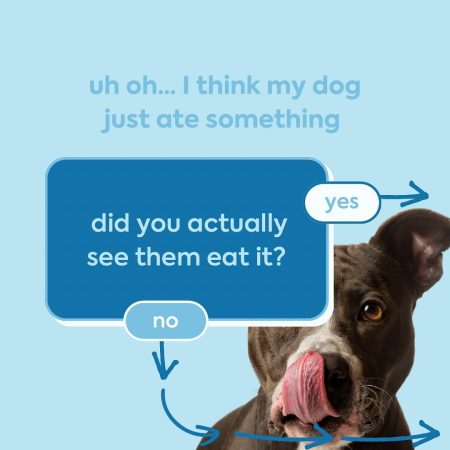
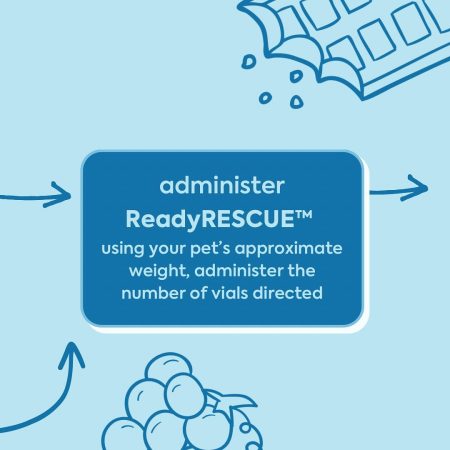
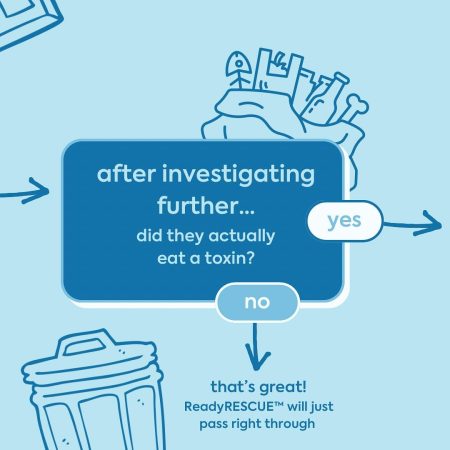
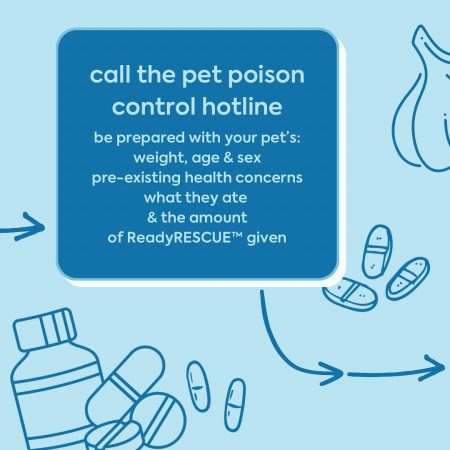
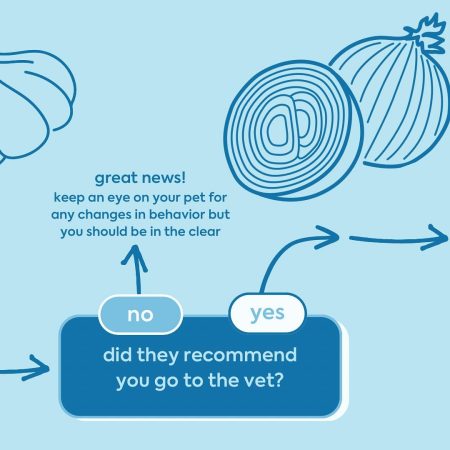
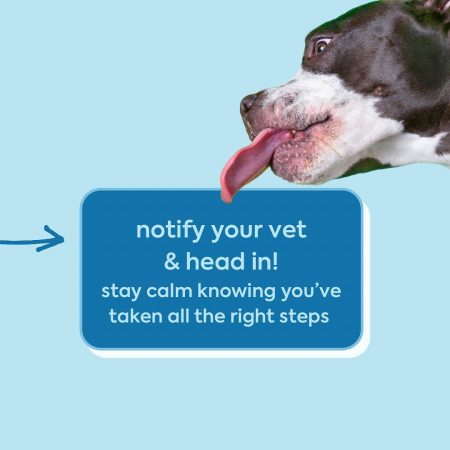
Recognizing the Symptoms of Grape or Raisin Toxicity in Dogs
Initial symptoms of grape or raisin toxicity in dogs include gastrointestinal upset, vomiting, reduced appetite, diarrhea, and lethargy, appearing within 12 to 24 hours after ingestion. More severe symptoms like uremic breath, abdominal pain, excessive thirst, and dehydration emerge within 24 to 48 hours, indicating potential acute kidney damage. In critical cases, kidney failure leads to cessation of urine production, toxin buildup, and possibly death.
Given that grapes and raisins primarily target the kidneys, symptoms of ingestion will only become noticeable once significant kidney damage has occurred, preventing the body from effectively detoxifying itself.
How ReadyRESCUE™ Uses Cutting-Edge Science to Detoxify Your Pet
ReadyRESCUE™ acts like a super absorbent sponge, capturing toxins in the GI tract to prevent their absorption and safeguard your pet’s health. Extensively researched, activated charcoal offers significant benefits over traditional methods like induced vomiting, which can be less effective, more dangerous, and more distressing for your beloved pet. ReadyRESCUE™ is an advanced form of activated charcoal, specifically formulated so it can be safely administered at home, quickly and easily.
FAQs
Can Dogs Eat Grapes or Raisins?
No, grapes and raisins are highly toxic to dogs and can lead to acute kidney failure. Even a small amount can be dangerous, so they should be avoided entirely.
What Should I Do If My Dog Eats Grapes or Raisins?
Immediate action is crucial. Contact your vet right away, and consider using a product like ReadyRESCUE™ to mitigate the effects while you seek professional help.
How Do I Use ReadyRESCUE™ in Case of Grape or Raisin Ingestion?
Administer ReadyRESCUE™ immediately following the ingestion of grapes or raisins according to the weight-specific dosage instructions provided with the product. This can be a critical step before getting your pet to a veterinarian.
What Makes ReadyRESCUE™ Different from Other Detox Products?
ReadyRESCUE™ uses a highly concentrated form of activated charcoal that acts fast to bind toxins, ensuring they are not absorbed by the body. It is designed to be easy to administer and safe to use, even if it's not certain that your pet has ingested something toxic.
Is ReadyRESCUE™ Safe for All Dogs?
Yes, ReadyRESCUE™ is safe for dogs of all sizes and breeds. It has been thoroughly tested and is supported by veterinary science to ensure its safety and efficacy.
How Effective Is ReadyRESCUE™ If There’s a Delay in Administration?
While immediate administration is ideal, ReadyRESCUE™ is still effective even if there is a delay. However, the sooner it is administered after ingestion of a toxin, the more effective it will be.
A Loving Reminder
The information provided at ThePetPicks.com is based on research and expertise, aiming to enhance the bond between you and your dog. However, it’s essential to remember that every dog is unique. Always consult with professionals, like veterinarians or trainers, for specific concerns or advice. At ThePetPicks.com, we believe in “Trust Born from Love,” and we encourage every pet parent to make informed decisions rooted in love and care

